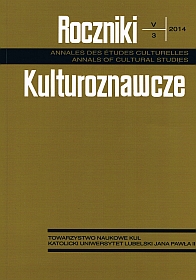Cyprian Norwid and the Paris Commune
Abstract
By describing the Paris Commune as an act of terrorism, Cyprian Norwid, in his correspondence, emphasizes his critical view of the Commune and mentions his own active resistance in persuading his compatriots, “to refuse to serve the terrorist Commune,” and declares his readiness to face the consequences of his words. The traumatic experience of those few months in 1871 also left its traces in Norwid’s critical and literary works. The present article is an attempt at tracing the vestiges of that experience in the author’s correspondence and in “Przyczynek do Rzeczy o wolności słowa” (1871), a key text in understanding Norwid’s view of the Commune. It is also an attempt to interpret Norwid’s explicitly negative reaction to that revolutionary effort, expressed immediately after an unequal fight and at the time of the bloody suppression of the Commune and the ongoing executions of thousands of its participants.
References
Horne A.: The fall of Paris. The Siege and the Commune 1870-71. London: Macmillan 1965.
Baczko B.: Jak wyjść z terroru. Przełożył Wiktor Dłuski. Gdańsk: Słowo/obraz/terytoria 2005.
Łapiński Z.: Spółczesny ekstrem. W: Cyprian Norwid w 150-lecie urodzin. Red. M. Żmigrodzka. Warszawa: Państwowy Instytut Wydawniczy 1973.
Norwid C.: Pisma wszystkie. Zebrał, tekst ustalił, wstępem i uwagami krytycznymi opatrzył J. W. Gomulicki. T. I-XI. Warszawa: Państwowy Instytut Wydawniczy 1971-1976.
Trojanowiczowa Z., Lijewska E.: Kalendarz życia i twórczości Cypriana Norwida. T. 2: 1861-1883. Poznań: Wydawnictwo Poznańskie 2007.
Trznadel J.: Wielka i straszna (o Wielkiej rewolucji Francuskiej): http://www.jacektrznadel.pl/index.php-option=com_content&task=view&id=60&Itemid=31.htm





